A British-Iranian who spent over four years in Tehran’s Evin Prison says claims by Islamic Republic officials that “no-one is imprisoned in Iran because of their beliefs” are “among the 1000s of lies they have said”.
“This can be considered one of those many lies,” Anoosheh Ashoori said in an exclusive interview with Article18. “Because I met these people.”
One such prisoner, alongside whom Anoosheh was detained and who remains in Evin Prison, is Christian convert Yasser Akbari.
Anoosheh said it was for Yasser’s sake that he agreed to the interview, explaining how the two had become friends during the marquetry classes they took together inside prison.
The former hostage described Yasser as a “kind” and “fantastic human being”, whose “pain was in fact more severe than others” due to the loss of his only son, Amir Ali, during their time together in prison.
https://www.instagram.com/p/C_vnGJCOrkx/
“Amir Ali had many medical issues, and [Yasser] was not allowed to go and visit him,” Anoosheh explained, with tears in his eyes. “And even when his condition became critical, and he was there begging the authorities to allow him to go and visit his son in the hospital, they didn’t.
“And after he passed away, it took quite a while before he was allowed to go to attend the funeral.
“Even now, it is so crystal clear [in my mind], all of that pain that he was going through, and he’s still there [in prison].”
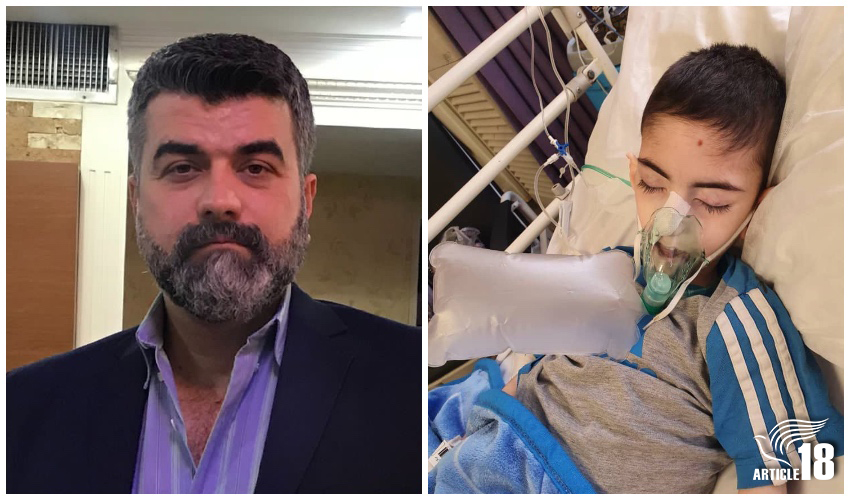
Yasser Akbari said he carries the grief of the death of his son, Amir Ali, “like a suppressed cry and an unexpressed sorrow”.
Anoosheh described Yasser and other imprisoned Christian converts as “prisoners of conscience”, adding: “When we are born, we haven’t chosen our names, and we haven’t chosen our religion … And when we grow up, it is up to us to decide what we want to be. Do we want to believe, or do we not want to believe. One has to have the freedom to choose [one’s] religion, and the freedom of thought. Unfortunately, in that country, that doesn’t exist.”
Anoosheh added that the Iranian authorities’ insistence that the presence of several hundred churches for Armenian and Assyrian minorities displayed its “religious freedom” was another way in which the regime hides its “filth under a veneer of legality”.
“You would look at it from the outside, and you would say, ‘Well, what is the problem?’” he said. “But you just need to get inside [the country] to see that filth – to see that rotten way of thinking that exists there.”
Anoosheh was 63 years old when he was first detained, and said it pained him to hear that several current Christian prisoners of conscience are of a similar age, such as Iranian-Armenian pastor Anooshavan Avedian, who is 62, and Christian convert Mina Khajavi, who will turn 61 later this year.
“It’s the time that you should retire, enjoy your life with your [spouse], with your family, perhaps with your grandchildren,” he said. “And then this happens [that you are arrested, and] for a lot of us in that situation, it is very difficult to find hope and to fight and go forward, hoping that you would be released one day.”
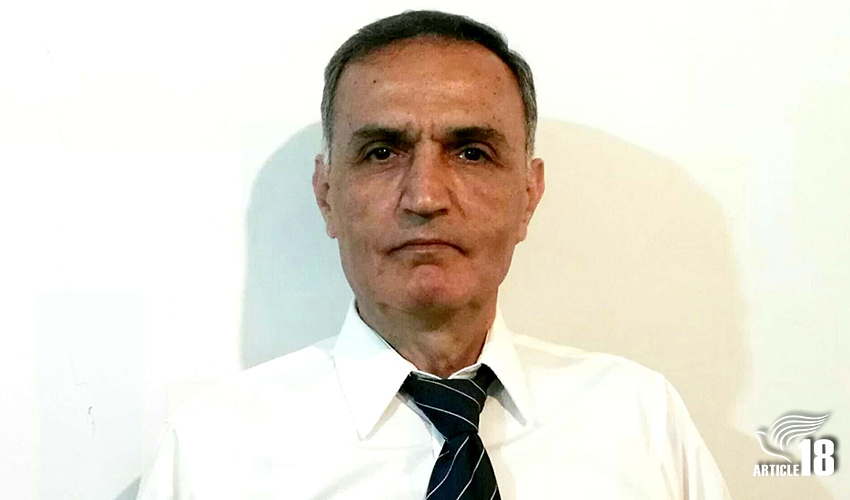
Anooshavan Avedian, 62, is serving a 10-year prison sentence for leading a house-church.
Anoosheh was released in March 2022, alongside fellow British-Iranian Nazanin Zaghari-Ratcliffe, after the UK agreed to pay back a longstanding debt to Iran.
Anoosheh was never and remains not nearly so well known as his fellow British-Iranian, and acknowledged that this was difficult to deal with.
“Of course, it is so,” he said. “Unfortunately, not only in Britain, but everywhere in the world, news must be attractive. I remember somebody told my wife or my daughter, when they actually complained about why we were not being also mentioned as frequently, and a journalist told them that ‘your news is not sexy enough’.
“So then it becomes doubly difficult for you. And then, compare me with Yasser, whose name is so obscure, he’s not even being mentioned, and the reason I am here is to let Yasser know, to let people like Yasser know, that although I am free and am here in Britain, I have not forgotten about them.
“One of the reasons one can survive in a prison like Evin is that they know that somebody is thinking of them. They know that they are not forgotten. And once you know that, that element of hope is there for you so you can carry on that little further, until your freedom arrives.”
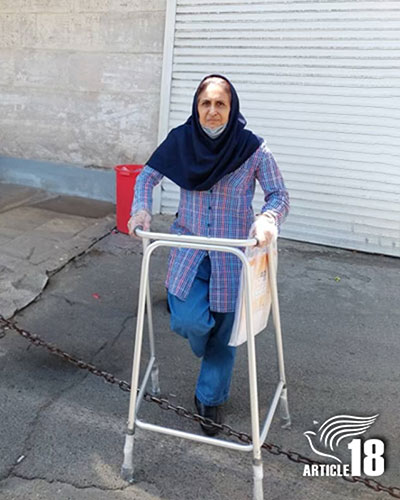
Mina Khajavi, who is serving a six-year sentence, will turn 61 in December.
But Anoosheh said he could also understand why some choose not to publicise their cases.
“It’s quite complicated,” he explained, “because they have got relatives, and the authorities don’t have any red lines. They can arrest relatives. They can threaten you. I mean, they threatened me that they would kill my family members. And when I told my interrogator that, ‘Look, they are in Britain, you cannot reach them,’ he told me, ‘Remember [assassinated former Prime Minister] Bakhtiar,’ and that was it, I got my answer.
“So for many of the people who are silent, it’s because of the fear of harm coming to their loved ones because they’re still in Iran.”
At the same time, Anoosheh said publicity “in a general form is a must, because social awareness is a must”, and the result of increased awareness may be the reason why, for example, those accused of apostasy are no longer executed, “because of the international repercussions”.
“Otherwise [the Iranian authorities] would be exactly the same as the Taliban [and] execute any convert straight away,” he said.
Anoosheh said that inside Evin Prison there was a famous saying that “days look like centuries, and years seem like days, because you go around seeing people and you ask, ‘how long are you here?’ And the other guy says ‘nine years’. Another one says ‘seven years’. But then, every second, every minute of spending time in that circle of hell, in itself, is quite a long time. You have to fill in those times by doing things; otherwise you would go insane.”
And aside from the marquetry classes that he took with Yasser, Anoosheh devoted much of his time to exercise, with the dream of completing the London Marathon once he was eventually freed.
Anoosheh has since completed three marathons to raise awareness about those he “left behind”, and says he plans to run the next one, providing his knees “don’t betray” him.
You can watch the full interview here.
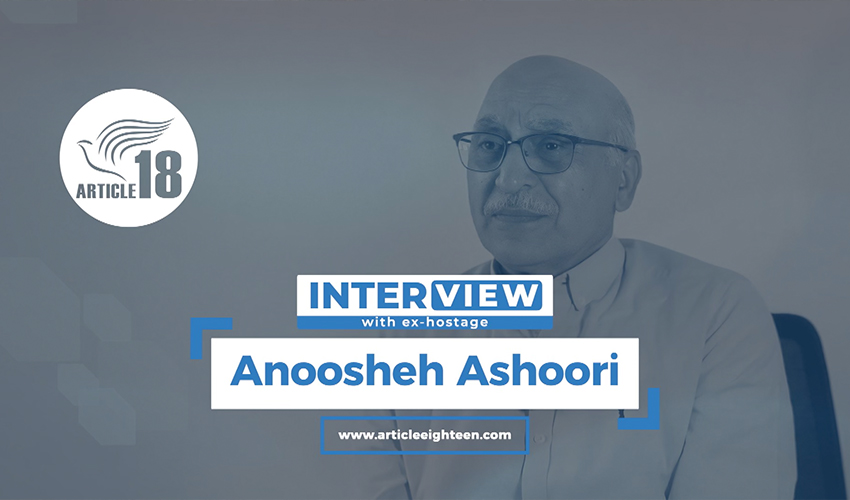
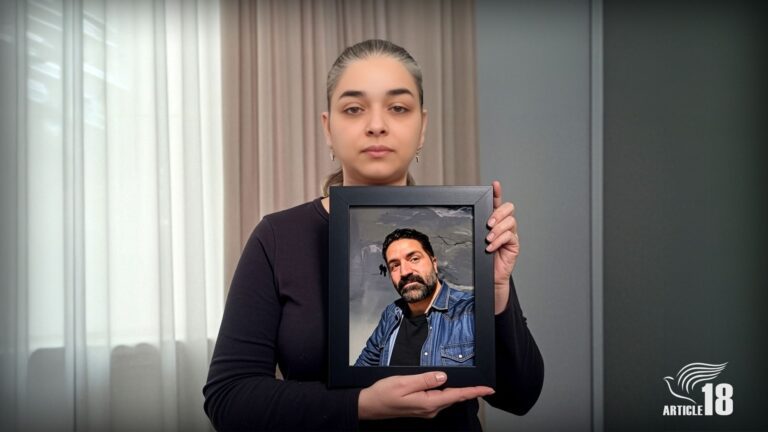
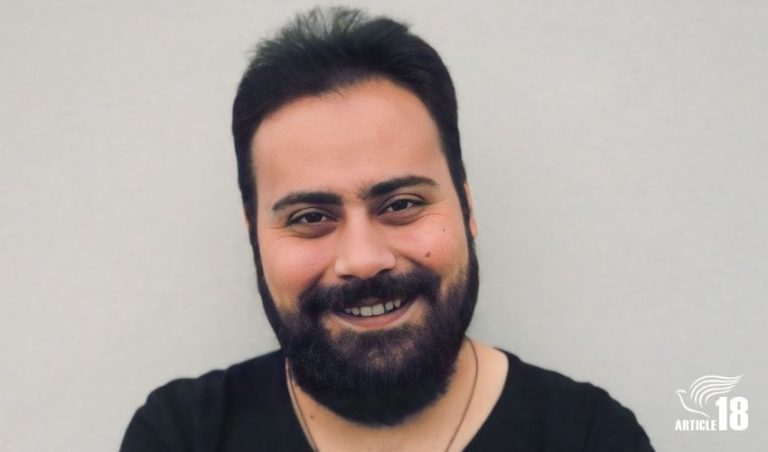
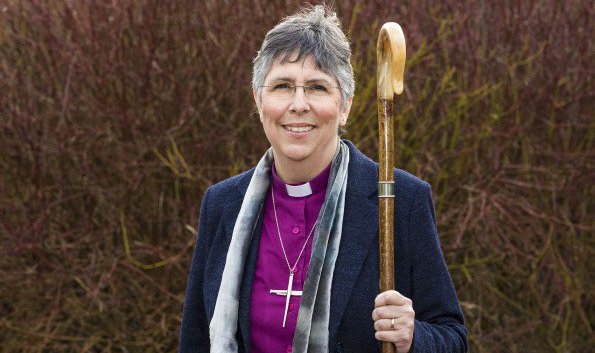
0 Comments
Trackbacks/Pingbacks